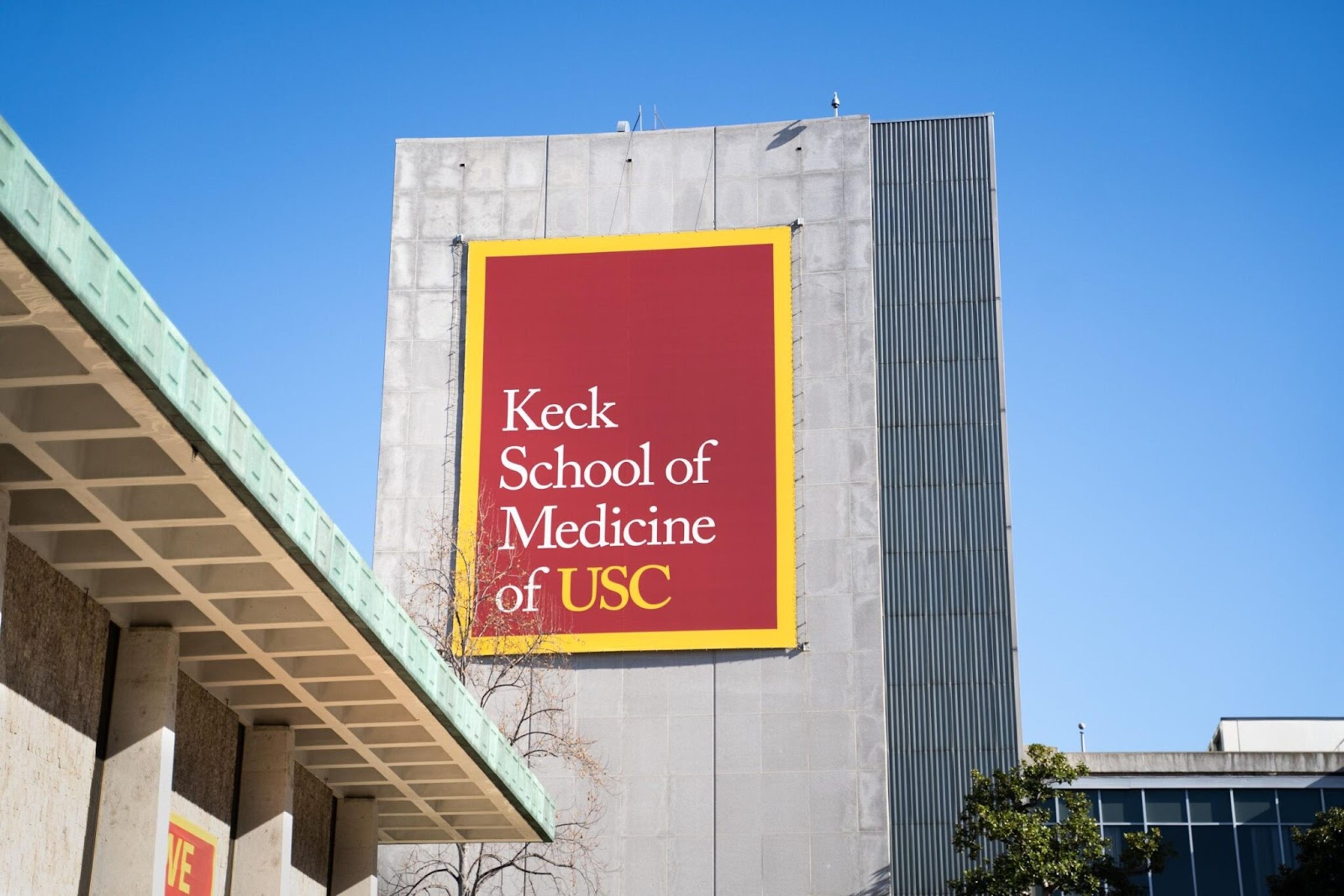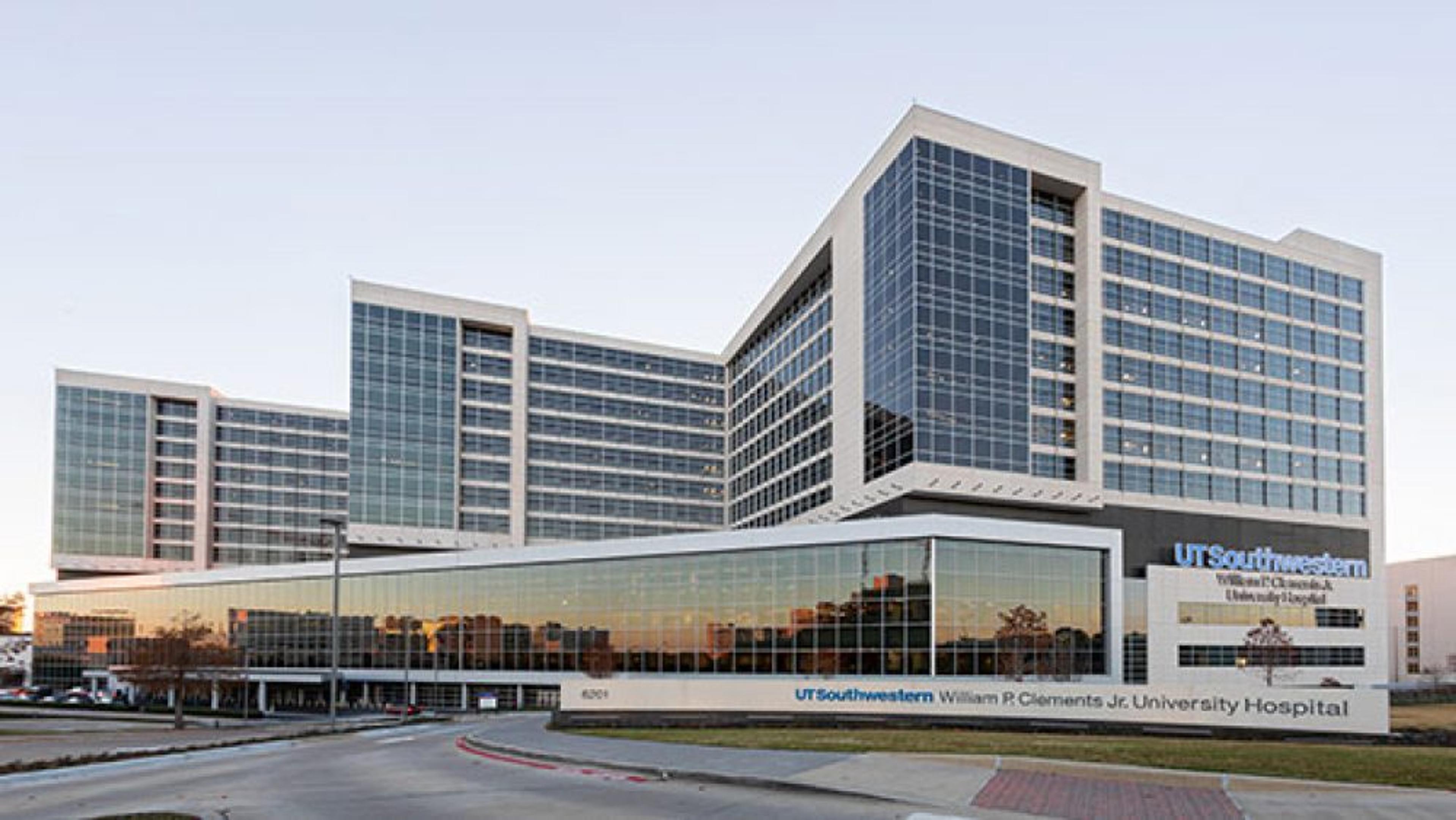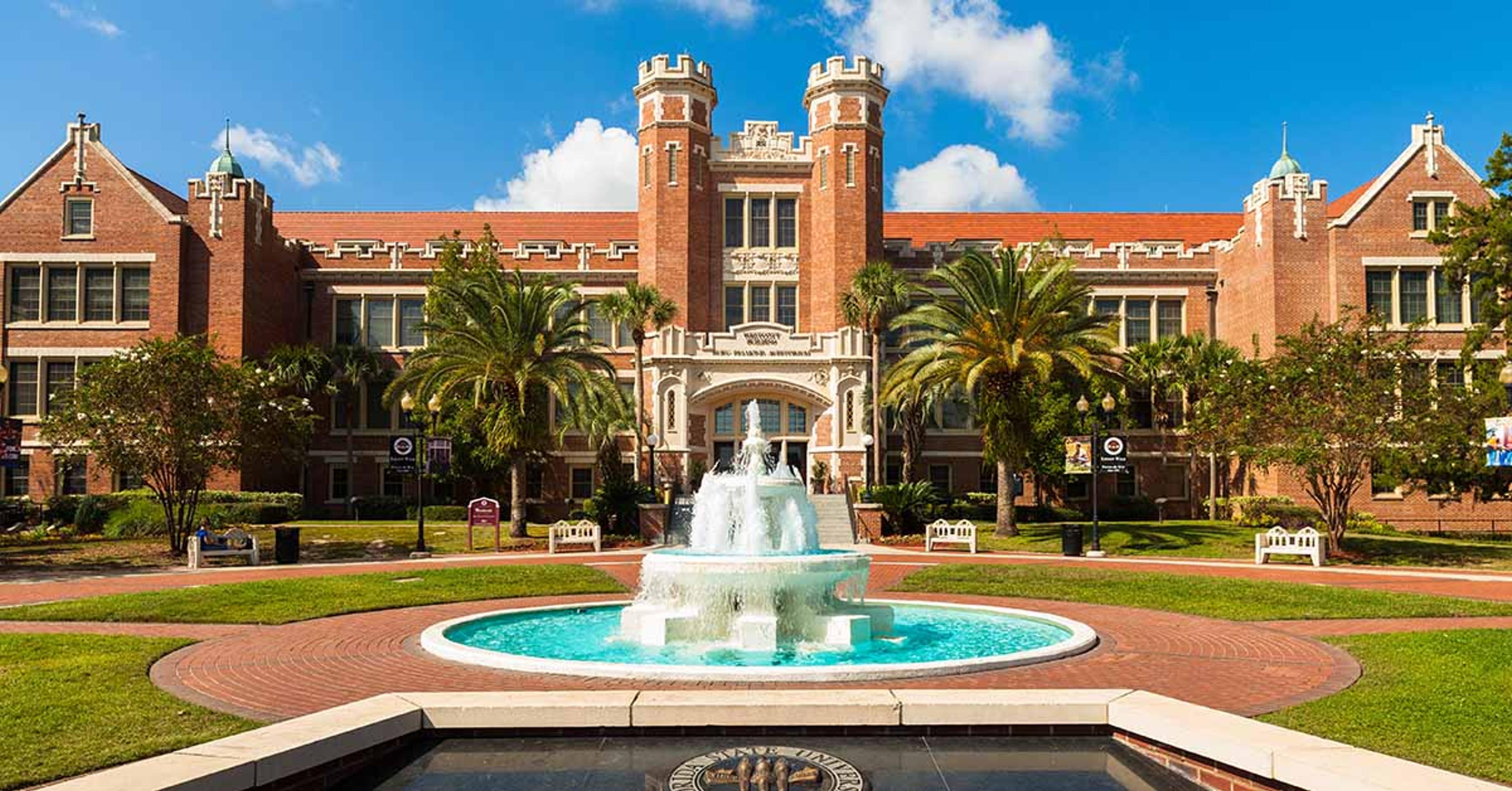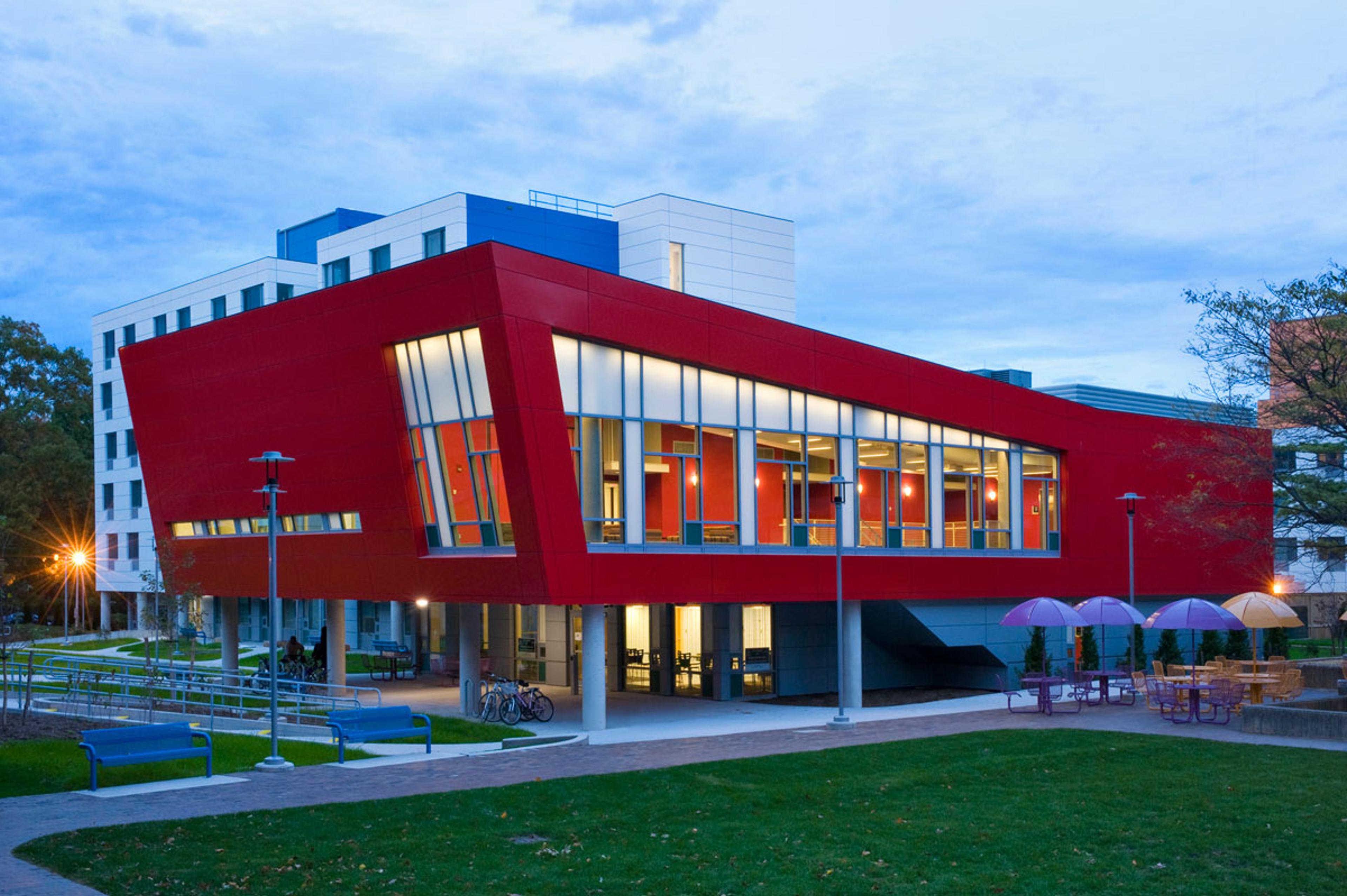Top 20 Physician Assistant Programs: With Acceptance Rates, Class Stats, & Deadlines
Explore the Top 20 Physician Assistant Programs with key stats, deadlines, and acceptance rates to help you choose the right PA school for your goals.
Posted June 13, 2025

Table of Contents
Free Event

Featuring Pravesh S.
Secondary Essays Decoded: Your Blueprint for Writing Success
Starting Tuesday, September 9
7:00 PM UTC · 60 minutes

Featuring Pravesh S.
If you're considering pursuing a career as a physician assistant (PA), it's essential to choose the right school. We've compiled a list of the top 20 physician assistant schools in the United States, based on their acceptance rates, class profiles, and other factors.
In this comprehensive guide, we'll provide you with everything you need to know about each program, so you can make an informed decision about your education and future career.
What Is a Physician Assistant and What Do They Do?
Physician assistants are licensed medical professionals who work under the supervision of physicians or surgeons. They play a crucial role in disease prevention, preparing to engage in proactive health measures to improve community health outcomes. They can diagnose patients, manage treatment plans, prescribe medications, and assist in surgery across various clinical settings. The physician assistant profession continues to grow due to demand for cost-effective, patient-centered care.
Why the School You Choose Matters
Attending an accredited program matters not just for licensure but also for preparing for real-world clinical practice. Accreditation remains in effect as long as the program complies with ARC-PA standards. Top schools offer access to strong faculty, a robust curriculum, excellent clinical training, and high PANCE pass rates. Programs are granted accreditation status when they meet ARC-PA standards. Choosing a school with strong program competencies, diversity initiatives, and solid student support systems helps prepare graduates for success. Compliance with ARC-PA standards is crucial for maintaining accreditation. Continued compliance with ARC-PA standards ensures ongoing accreditation.
How Do They Differ from Doctors?
While PAs and doctors both provide patient care, there are some critical differences between the two professions. Doctors receive more extensive training, including a four-year medical school program, while most PAs complete a two-year master's degree program. PAs also typically focus on primary care and preventive medicine, while doctors may specialize in specific fields such as cardiology or neurology.
Another difference between PAs and doctors is the level of autonomy they have in their practice. While PAs work under the supervision of a licensed physician, they are still able to make medical decisions and provide care to patients. However, doctors have the ultimate responsibility for patient care and are able to make more complex medical decisions without supervision.
Despite these differences, PAs and doctors often work together as part of a healthcare team to provide the best possible care for patients. PAs can help to alleviate the workload of doctors by taking on tasks such as patient education and follow-up care, allowing doctors to focus on more complex medical issues. Together, PAs and doctors can provide comprehensive and effective healthcare to patients.
How to Choose the Best Physician Assistant School for You
Before we dive into the details of each program, it’s important to understand what you should look for when choosing a physician assistant school. Here are some essential factors to consider:
- Accreditation: Make sure the program is accredited by the Accreditation Review Commission on Education for the Physician Assistant (ARC-PA).
- Understand the program's accreditation history to ensure transparency and credibility. Check the detailed accreditation history to see compliance with ARC-PA standards.
- Know the review date for the program's next validation review to ensure continued adherence to educational standards.
- Location: Consider the location of the school and the clinical rotations available in the area.
- Class size: Look for programs with smaller class sizes for a more individualized learning experience.
- Curriculum: Evaluate the curriculum to ensure it aligns with your career goals and offers opportunities for specialization.
- Faculty: Research the faculty, including their backgrounds and areas of expertise, to see if they align with your interests.
Another important factor to consider when choosing a physician assistant school is the program’s success rate in preparing students for the Physician Assistant National Certifying Exam (PANCE). Look for schools with high pass rates, as this indicates that the program provides a strong foundation of knowledge and skills necessary for success in the field. Additionally, consider the resources and support available to students, such as tutoring, exam preparation courses, and clinical skills workshops, to ensure that you have the best chance of passing the exam and launching your career as a physician assistant.
Top 20 PA Schools Ranked (With Acceptance Rates & Deadlines)
| School | Location | Acceptance Rate | CASPA Deadline |
|---|---|---|---|
| Duke University | Durham, NC | ~3% | September 1 |
| University of Iowa | Iowa City, IA | ~2.4% | October 1 |
| Baylor College of Medicine | Houston, TX | ~2.5% | August 1 |
| Tufts University | Boston, MA | Not disclosed | August 1 |
| George Washington University | Washington, DC | Not disclosed | October 1 |
| University of Colorado (CHA/PA) | Aurora, CO | ~2.2% | September 1 |
| Emory University | Atlanta, GA | ~3% | September 1 |
| University of Utah | Salt Lake City, UT | ~3% | September 1 |
| Yale University | New Haven, CT | 3.8% | September 1 |
| Northwestern University | Chicago, IL | ~3% | August 1 |
| University of Southern California (Keck) | Los Angeles, CA | ~5% | September 1 |
| Rutgers University | Piscataway, NJ | ~3.6% | October 1 |
| University of Texas Southwestern | Dallas, TX | Not disclosed | September 1 |
| University of Florida | Gainesville, FL | ~2.7% | August 1 |
| University of Nebraska (UNMC) | Omaha, NE | ~13.9% | August 1 |
| Wake Forest University | Winston-Salem, NC | Not disclosed | September 1 |
| Stony Brook University | Stony Brook, NY | Not disclosed | September 1 |
| University of Wisconsin–Madison | Madison, WI | Not disclosed | September 1 |
| Creighton University (Omaha) | Omaha, NE | Not disclosed | August 1 |
| Creighton University (Phoenix) | Phoenix, AZ | ~8.2% | August 1 (Supp: Sept 1) |
| Medical University of South Carolina | Charleston, SC | ~6.9% | September 1 |
1. Duke University Physician Assistant Program
The Duke Physician Assistant Program is one of the most competitive and well-established in the U.S., offering a Master of Health Sciences degree through a 24-month, 109-credit curriculum that blends coursework, labs, simulations, and clinical training. Accredited by ARC-PA, the program emphasizes leadership, diversity, cultural humility, and care for underserved populations. The program maintains compliance with ARC-PA standards, with the approximate date for the next validation review set for 2025. Admission is extremely selective, requiring GRE scores, a minimum grade of B in prerequisites, and at least 1,000 hours of direct patient care experience, with nearly 3,000 applicants vying for just 90 spots annually.

- Duke PA Program Acceptance Rate: 3%
- Class Profile (2024) Median Overall GPA: 3.77
- Median Natural Science GPA: 3.76
- Median Health Care Hours: 4,000
- Median GRE Total: 314
- Median GRE Verbal: 157
- Median GRE Quantitative: 157
- Median GRE Analytical: 4.5

2. University of Iowa Physician Assistant Program
The University of Iowa’s Master of Physician Assistant Studies (MPAS) program is a top-ranked, highly selective PA program known for its integration with the Carver College of Medicine and close ties to the University of Iowa Hospitals and Clinics. With only 25 seats available annually, students complete medical school-level coursework and gain diverse clinical experience while developing skills in leadership and collaboration. Admission requires a bachelor’s degree, a strong science background, extensive patient care hours, and competitive GRE scores. The program boasts a 99% first-time PANCE pass rate and a 100% job placement rate. The program is in compliance with the standards set by the Accreditation Review Commission on Education for the Physician Assistant (ARC-PA).
Class Profile (2026)
- University of Iowa PA Program Acceptance Rate: ~2.4%
- Women: 77%
- Men: 23%
- Class Size: 25
- Applications Received: 1,060
- Applicants Interviewed: 158
- Average Overall GPA: 3.78
- Average Science GPA: 3.79
- Average Health Care Hours: 4,586
- Average Research Hours: 308
- Average Age: 26
The program's accreditation remains in effect as long as it complies with ARC-PA standards.

3. Baylor College of Medicine Physician Assistant Program
Ranked #2 nationally and #1 in Texas, the Baylor College of Medicine PA Program offers a 30-month curriculum focused on academic excellence, clinical training, and leadership development. Located in the Texas Medical Center, the program blends science, clinical rotations, and research through a Master’s Paper, with additional training in global health and ethics. Baylor admits 40 students annually through a competitive four-stage process. While healthcare experience isn’t required, it is considered, and applicants must meet GPA, prerequisite, and CASPA submission requirements by August 1. The program maintains compliance with ARC-PA standards, ensuring high-quality education and training.
Class Profile (2024)
- Baylor College of Medicine PA Program Acceptance Rate: ~2.5%
- Class Size: 40
- Attrition Rate: 5%
- Graduation Rate: 95%
- First-Time PANCE Pass Rate: Consistently exceeds national average
- Healthcare Experience: Encouraged, but not required
- Didactic Phase: 13 months
- Clinical Phase: 17 months
- Program Length: 30 months
- Accreditation Status: Accreditation-Continued status granted by ARC-PA

4. Tufts University School of Medicine Physician Assistant Program
The Tufts University PA Program offers a 25-month, hands-on curriculum in Boston’s healthcare hub, training students through simulations, interdisciplinary collaboration, and diverse clinical rotations. With a January start, the program admits students via a holistic, rolling process and requires a verified CASPA application by August 1, a strong academic background, and at least 1,000 hours of direct patient care. The program maintains compliance with ARC-PA standards, ensuring high-quality education and training. A dual PA/MPH degree is also available for those interested in combining clinical practice with public health leadership.
Class Profile (2025)
- Acceptance Rate: Not publicly disclosed
- Class Size: ~50
- Average Overall GPA: 3.87
- Average Prerequisite GPA: 3.84
- Average Science GPA: 3.84
- Average Patient Care Hours: 2,502
- Required Patient Care Hours: 1,000 minimum (1,500+ recommended)
- GRE/MCAT: Optional
- Didactic Phase: 12 months
- Clinical Phase: 13 months
- Program Length: 25 months
The program has been granted accreditation status by ARC-PA, reflecting its adherence to the required standards and commitment to ongoing compliance.

5. George Washington University Physician Assistant Program
The George Washington University PA Program, located in Washington, D.C., offers a two-year MSHS and a three-year dual MSHS/MPH degree, blending clinical training with public health education. Known for its focus on primary care, health equity, and service, the program emphasizes leadership and community involvement in its holistic admissions process. The program maintains compliance with ARC-PA standards, ensuring high-quality education and training. Applicants need a minimum 3.2 GPA, 1,000 hours of direct patient care, and three references, with GRE/MCAT scores optional. Verified CASPA applications and a supplemental GW application are due by October 1.
The program has been granted accreditation status by ARC-PA, reflecting its adherence to the required standards.
Class Profile (2026)
- GW PA Program Acceptance Rate: Not publicly stated
- Class Size: 60
- Median Overall GPA: 3.73
- Median Science GPA: 3.72
- Direct Patient Care Hours (Median): 2,668
- Average Age at Matriculation: 26
- Gender: 83% Female, 17% Male
- Race/Ethnicity: 62% White, 15% Asian, 10% Black/African American, 5% Hispanic
- First-Generation Students: 15%
- Economically Disadvantaged: 5%
- States Represented: 22 (85% out-of-state students)
- Volunteer Experience: 91% had volunteer hours; 24 had 0–200 hours
- Leadership Experience: 75% held leadership roles
- Program Length: 24 months (MSHS), 36 months (MSHS/MPH)

6. University of Colorado CHA/PA Program
The University of Colorado CHA/PA Program, founded in 1968, is a highly competitive three-year PA program based at the Anschutz Medical Campus in Aurora. As the first in the U.S. to offer a master’s degree in PA studies, it emphasizes primary care and pediatric medicine through innovative tracks like Rural Health and Global Health. The curriculum features longitudinal clinical training and interprofessional collaboration. Though healthcare experience isn’t required, admitted students average over 2,000 hours of direct patient care. With over 2,000 annual applicants, the program admits just 44 students per year. The program maintains compliance with ARC-PA standards to ensure high-quality education and training.
Class Profile (2027)
- CHA/PA Program Acceptance Rate: ~2.2% (44 admitted / 2,005 applicants)
- Class Size: 44
- Average Cumulative GPA: 3.76 (range 3.37–4.00)
- Average Science GPA: 3.69 (range 3.26–4.00)
- Average Age at Matriculation: 23 (range 20–31)
- Gender: 86% Female, 14% Male
- In-State Students: 52%
- Underrepresented Students: 10+ students identifying as American Indian, Asian, Black, or Hispanic
- Disadvantaged Background: 22 students self-identified
- Median Patient Care Experience: 2,242 hours
- Median Volunteer Hours: 361
- Median Health-Related Hours: 308
- Median PA Shadowing Hours: 74
- Program Length: 36 months
The program has been granted accreditation status by ARC-PA, reflecting its adherence to the required standards and commitment to maintaining high educational quality.

7. Emory University Physician Assistant Program
Consistently ranked among the top 10 PA programs in the nation by U.S. News & World Report, the Emory University Physician Assistant Program is known for its commitment to community-oriented primary care, hands-on clinical training, and health equity. Located in Atlanta, Georgia, Emory offers a 29-month Master of Medical Science (MMSc) in PA Medicine and dual-degree options in PA/MPH and PA/MBA.
Founded as one of the original PA programs in the country, Emory’s curriculum emphasizes population health, team-based medicine, and service to medically underserved communities. Students participate in clinical training across Georgia, including the Emory Farmworker Project, which delivers care to more than 2,000 migrant workers annually. The program actively seeks students with diverse experiences in service, military, or volunteer settings. The program maintains compliance with ARC-PA standards to ensure high-quality education and training.
Class Profile (2024)
- Emory PA Program Acceptance Rate: ~3% (based on historic averages)
- Class Size: 52
- Program Length: 29 months
- Degree Options: MMSc-PA, PA/MPH, PA/MBA
- Mission Focus: Community health, medically underserved care, population health
- Clinical Training: Includes Emory Farmworker Project and 14 months of supervised rotations
- Curriculum Format: Interprofessional, case-based, with small-group learning
- Preferred Applicants: Those with prior service, healthcare experience, or a strong interest in public health
- Tuition: Competitive for a private institution; financial aid and limited scholarships available
- Accreditation Status: The program has been granted Accreditation-Continued status by ARC-PA, reflecting its adherence to required standards and ongoing compliance.

8. University of Utah Physician Assistant Program
Established in 1971, the University of Utah’s Physician Assistant (PA) Program is one of the oldest and most respected PA programs in the western United States. It consistently ranks among the top PA programs due to its rigorous curriculum, a strong emphasis on community service, and a focus on primary care. The program is designed to produce compassionate, patient-centered PAs capable of addressing a wide range of medical needs in both urban and rural settings.
The program’s mission is to prepare students to diagnose, treat, and manage patients’ health through both primary care and specialty fields. Graduates of the program are well-prepared to provide healthcare to diverse populations, often serving in medically underserved areas. The University of Utah offers both traditional PA training and opportunities for students to specialize through the MPAS degree. The program maintains compliance with ARC-PA standards to ensure the highest quality of education.
Class Profile (2024)
- Acceptance Rate: ~3%
- Class Size: 68
- Program Length: 27 months
- Degree: Master of Physician Assistant Studies (MPAS)
- Female: 59%
- Male: 41%
- Average Age: 26
- Healthcare Experience (Median): 2,000 hours
- Undergraduate Majors: Biology, Health Science, Psychology, Public Health, Kinesiology, and more
- Veterans: 3%
- Mission Focus: Primary care, health equity, community service
- Tuition: Affordable, with in-state and out-of-state students paying comparable rates
- Clinical Training: Includes rotations in underserved areas and integration with other healthcare professions
- Preferred Applicants: Those with diverse healthcare experience and community service backgrounds
- Accreditation Status: Accreditation-Continued status granted by ARC-PA, ensuring ongoing compliance with educational standards

9. Yale School of Medicine Physician Associate Program
Yale’s Physician Associate Program prepares students to practice medicine with cultural humility and strong clinical reasoning across diverse populations and health care settings. The program grants a Master of Medical Science (MMSc) degree and emphasizes leadership, research, and advanced clinical practice. Students benefit from Yale’s academic environment, small cohort size, and access to world-class health system resources. The curriculum spans 28 months and includes didactic, clinical, and research components. Students develop skills in medical knowledge, professional behavior, and team-based patient care. Admission to the program is highly selective. Applicants must submit a verified CASPA application, GRE scores (ETS code 3983), three letters of recommendation (one from a health professional), and a supplemental application.
The program follows a rolling admissions policy. All applicants must meet specific prerequisite course and experience requirements, including at least 1,000 hours of direct patient care experience. No deferrals or transfer credits are permitted. The program maintains compliance with ARC-PA standards to ensure high-quality education and training.
Class Profile (2026)
- Yale PA Program Acceptance Rate: 3.8%
- Women: 77%
- Men: 23%
- Class Size: 40
- Applications Received: 1,060
- Applicants Interviewed: 158
- Average Overall GPA: 3.74 (Range: 3.27–3.98)
- Average Science GPA: 3.70 (Range: 3.11–4.0)
- Average Health Care Hours: 2,632 (Range: 1,000–10,888)
- Mean GRE Percentile – Verbal: 82
- Mean GRE Percentile – Quantitative: 63
- Mean GRE Percentile – Analytical: 83
The program has been granted accreditation status by ARC-PA, reflecting its adherence to the required standards and commitment to maintaining excellence in education.

10. Northwestern University Feinberg School of Medicine Physician Assistant Program
Ranked among the top PA programs in the nation, the Northwestern University Feinberg School of Medicine Physician Assistant Program offers a comprehensive Master of Medical Science (MMS) degree. The program is known for its innovative 24-month curriculum, which prepares students to provide compassionate, high-quality, patient-centered care. Northwestern’s PA program emphasizes cultural sensitivity, continuous learning, and professional development, with a focus on interprofessional collaboration and service to underserved communities. The program maintains compliance with ARC-PA standards, ensuring the highest quality of education and training.
Admission to the program is highly competitive, and applicants must demonstrate strong academic performance, substantial clinical experience, and excellent interpersonal skills. The program has a track record of preparing PAs for leadership roles in both primary and specialty care settings. Northwestern PA graduates enjoy a high first-time pass rate on the national certification exam and robust job placement rates. The program has been granted accreditation status by ARC-PA, reflecting its adherence to rigorous standards and commitment to excellence.
Class Profile (2026)
- Northwestern PA Program Acceptance Rate: ~3%
- Women: 80%
- Men: 20%
- Class Size: 68
- Applications Received: 2,257
- Applicants Interviewed: 158
- Average Overall GPA: 3.82
- Average Science GPA: 3.77
- Average Health Care Hours: 3,750
- Average Age: 25
- Underrepresented in Medicine (URM): 19%
- First in Family to Attend College: 23%
- Economically/Educationally Disadvantaged: 9%
- Number of Represented States: 23

11. Keck School of Medicine of USC Physician Assistant Program
The Physician Assistant Program at the Keck School of Medicine of USC is a renowned, graduate-level program that offers a Master of Physician Assistant Practice (MPAP) degree. Known for its excellence in education and leadership, the program prepares students to provide high-quality care in a wide variety of clinical settings. Emphasizing primary care, the curriculum integrates rigorous academic training with extensive hands-on clinical experience, fostering leadership, cultural sensitivity, and a commitment to serving underserved populations. The program maintains compliance with the Accreditation Review Commission on Education for the Physician Assistant (ARC-PA) standards.
The program admits students on a rolling basis, with a highly competitive application process that includes a thorough review of academic achievement, clinical experience, and community service. Successful applicants must demonstrate a strong academic background with a minimum GPA of 3.0, along with significant patient care experience. The program offers opportunities for students to engage in community outreach and clinical practice with diverse populations, providing a comprehensive education to become skilled and compassionate physician assistants. The program has been granted accreditation status by ARC-PA, ensuring it meets the required standards for quality education.
Class Profile (2026)
- Keck PA Program Acceptance Rate: ~5%
- Women: 80%
- Men: 20%
- Class Size: 68
- Applications Received: 2,257
- Applicants Interviewed: 158
- Average Overall GPA: 3.82
- Average Science GPA: 3.77
- Average Health Care Hours: 3,750
- Average Age: 25
- Underrepresented in Medicine (URM): 19%
- First in Family to Attend College: 23%
- Economically/Educationally Disadvantaged: 9%
- Number of Represented States: 23

12. Rutgers University Physician Assistant Program
Ranked as the #3 Physician Assistant program in the U.S. by U.S. News & World Report (2025), the Rutgers University Physician Assistant (PA) program offers a rigorous, three-year Master of Science degree. The program is distinguished by its commitment to humanistic, patient-centered care and its focus on community service. It provides a strong educational foundation with in-depth clinical training and simulation opportunities.
The curriculum is designed to produce well-rounded physician assistants equipped to serve diverse populations. The program maintains compliance with the Accreditation Review Commission on Education for the Physician Assistant (ARC-PA) standards. Rutgers’ PA program has a 97% first-time pass rate on the Physician Assistant National Certifying Exam (PANCE) and boasts a 100% ultimate pass rate from 2019-2024. The program emphasizes community outreach through the H.O.P.E. (Health Outreach Patient Experience) Clinic, where students work with underserved populations to provide essential healthcare. Additionally, Rutgers is one of the few PA programs offering both full-time and part-time options, with an emphasis on inclusivity and diversity in its admissions process.
The program has been granted accreditation status by ARC-PA, ensuring it meets the high standards required for continued accreditation.
Class Profile (2026)
- Rutgers PA Program Acceptance Rate: ~3.6%
- Women: 80%
- Men: 20%
- Class Size: 50
- Applications Received: 1,400+
- Applicants Interviewed: 150
- Average Overall GPA: 3.89
- Average Science GPA: 3.85
- Average Health Care Hours: 3,200
- Average Age: 27
- Underrepresented in Medicine (URM): 19%
- First in Family to Attend College: 23%
- Economically/Educationally Disadvantaged: 9%
- Number of Represented States: 40

13. UT Southwestern Master of Physician Assistant Studies Program
Ranked #11 nationally by U.S. News & World Report, the UT Southwestern Master of Physician Assistant Studies Program is a competitive, 30-month graduate-level PA program based in Dallas, Texas. Established in 1972, it provides a robust medical curriculum and over a year of hands-on clinical training at top-tier facilities, including Parkland Memorial Hospital and the William P. Clements Jr. University Hospital. The program blends intensive foundational coursework in medical and behavioral sciences with 15 months of clinical rotations across diverse healthcare settings. It emphasizes interprofessional collaboration, primary care, and service to medically underserved populations.
The program is in compliance with ARC-PA standards, ensuring high-quality education and training. The admissions process is holistic, taking into account academic performance, clinical experience, leadership, diversity, and personal background. The program begins in May each year, with applications due via CASPA by September 1. GRE scores are required unless the applicant holds both a U.S.-accredited bachelor’s and master’s degrees. Tuition remains affordable for in-state students, and financial aid is available.
Class Profile (Most Recent Data)
- UT Southwestern PA Program Acceptance Rate: Not publicly reported (highly competitive)
- Class Size: ~60
- Women: 74%
- Men: 26%
- URM Students: 35%
- Average Overall GPA: 3.6–3.8 (competitive candidates typically exceed the 3.0 minimum)
- Hands-On Patient Care Experience: Strongly recommended (no stated minimum; average accepted applicant has 1,000–4,000 hours)
- Application Deadline: September 1
- GRE Required: Yes (unless applicant holds a U.S.-accredited graduate degree)
- In-State Tuition: ~$47,135
- Out-of-State Tuition: ~$94,175
The program has been granted accreditation status by ARC-PA, reflecting its adherence to the required standards and commitment to maintaining excellence in education.

14. University of Florida School of Physician Assistant Studies
Consistently ranked among the top PA programs in the U.S., the University of Florida’s School of Physician Assistant Studies is a rigorous, full-time 24-month graduate program housed within the UF College of Medicine. Designed to train PAs to provide compassionate, high-quality care, UF’s curriculum integrates intensive academic coursework with 12 one-month clinical rotations across the state of Florida, culminating in a master’s degree and eligibility to take the PANCE.
The program places strong emphasis on public service, clinical excellence, and academic performance. It accepts 60 students annually and is known for its holistic admissions process that values both patient care experience and leadership qualities. Applicants must complete all prerequisite courses and direct patient care hours before the August 1 CASPA deadline. A CASPer test and a GRE score are required components of the application. The program maintains compliance with ARC-PA standards to ensure the highest quality education.
Class Profile (Most Recent Admitted Class)
- University of Florida PA Program Acceptance Rate: ~2.7%
- Class Size: 60
- Applications Received: ~2,200+
- Cumulative GPA Range: 2.86 – 4.0
- Science GPA Range: 2.97 – 4.0
- Average Direct Patient Care Hours: 2,112 – 29,920
- Average GRE Score (Verbal + Quantitative): 299–329
- Analytical Writing Score: 3.0 – 6.0
- Five-Year PANCE First-Time Pass Rate: 97%
- Attrition Rate: 4.2%
- Start Term: Late June
- CASPA Deadline: August 1
- GRE Code: 0427
- Minimum Direct Patient Care Hours: 1,000 (must be completed by August 1)
- CASPer Test Required: Yes
The program has been granted accreditation status by ARC-PA, reflecting its adherence to the required standards and commitment to ongoing compliance.

15. University of Nebraska Medical Center (UNMC) Physician Assistant Program
Established in 1973, the University of Nebraska Medical Center (UNMC) offers a competitive 28-month PA program with campuses in Omaha and Kearney, emphasizing family medicine, rural healthcare, and statewide service. Ranked #16 nationally, it accepts 66 students annually and features diverse clinical clerkships—including options in Alaska—plus dual-degree paths like the Doctor of Medical Science and MPAS/MBA. Admission requires a GRE score, 20 hours of PA career exploration, and completion of prerequisites by July 15, with no AP or CLEP credits accepted. The program uses a holistic, non-rolling admissions process. The program is in compliance with ARC-PA standards.
Class Profile (Entering Fall 2024)
- University of Nebraska PA Program Acceptance Rate: ~13.9%
- Class Size: 66
- Applications Received: 476
- Residents Accepted: 46 (NE)
- Average Overall GPA: 3.75 (range: 3.10–4.00)
- Average Science GPA: 3.63 (range: 2.81–4.00)
- Male/Female Ratio: 9 men / 57 women
- GRE Required: Yes
- PA Exploration Hours Required: 20
- Program Length: 28 months
- Campus Locations: Omaha, Kearney
- Start Term: August
The program has been granted accreditation status by ARC-PA.

16. Wake Forest University School of Medicine Physician Assistant Program
Founded in 1969, the Wake Forest PA Program offers a 24-month MMS degree built around an inquiry-based learning model that emphasizes small-group, real-patient case studies over lectures. With campuses in Winston-Salem and Boone, students gain urban and rural clinical exposure while preparing for both primary care and specialty roles. The program also offers advanced options like a Doctor of Medical Science (DMSc) and a PhD/MMS dual degree. The program is in compliance with ARC-PA standards, ensuring high-quality education and training.
Class Profile (Entering 2026)
- Wake Forest PA Program Acceptance Rate: ~9.7%
- Applicants: 1,413
- Interviewed: 219
- Accepted: 137
- Matriculated: 90
- In-State/Out-of-State: 28 / 62
- Average Age: 26
- Average GPA: 3.62 overall, 3.51 science
- Average GRE: 159 Verbal, 154 Quantitative
- Average Clinical Hours: 3,467
- URiM Students: 26
- First-Gen College Students: 22
- Economically Disadvantaged: 20
The program has been granted accreditation status by ARC-PA, reflecting its adherence to the required standards and commitment to maintaining compliance.
Admissions Requirements
- Minimum Clinical Hours: 1,000 (must be completed by Oct. 1 of application year)
- GRE: Required (within 5 years; Wake Forest code: 5923)
- CASPer Test: Required
- Degree: Bachelor’s from a U.S./Canadian institution by Dec. 31 of the matriculation year
- Prerequisites: Genetics, Biochemistry, Chemistry, Microbiology, Human Anatomy & Physiology (1 full year), Statistics, Medical Terminology
- Letters of Recommendation: 3 (one from a healthcare professional required)

17. Stony Brook University Physician Assistant Program
Established in 1971, the Stony Brook University PA Program delivers a 24-month Master of Science degree across its Stony Brook and Southampton campuses, emphasizing primary care and service to underserved populations. The program is in compliance with ARC-PA standards, ensuring high-quality education and training. Students gain early clinical exposure and rotate through specialties like family medicine and surgery, with a minimum of 500 hours of direct patient care required for admission. No GRE is needed, but applicants must submit a CASPA and supplemental application, meet rigorous academic and clinical standards, and hold BLS certification.
Class Profile & Outcomes (Graduated Classes: 2022–2024)
Main Campus – Stony Brook Health Sciences Center
Maximum Class Size: 45
Graduation Rate:
- Class of 2022: 93.3%
- Class of 2023: 88.6%
- Class of 2024: 93.5%
Attrition Rate:
- Class of 2022: 6.7%
- Class of 2023: 11.4%
- Class of 2024: 6.5%
Distant Campus #1 – Stony Brook Southampton
Maximum Class Size: 25
Graduation Rate:
- Class of 2022: 88%
- Class of 2023: 92%
- Class of 2024: 95.8%
Attrition Rate:
- Class of 2022: 12%
- Class of 2023: 8%
- Class of 2024: 4.2%
Additional Program Details
- Program Length: 24 months
- Degree Awarded: MS in Physician Assistant Studies
- Campus Locations: Stony Brook, Southampton
- Start Term: Summer
- GRE Required: No
- Direct Patient Care Hours Required: 500 (prior to interview)
- Application Platform: CASPA + Supplemental Application ($100 fee)
- Prerequisite GPA Requirement: 3.0 (overall and science)
- Science Coursework Must Be Recent: Preferably within 7 years
- AP Credit for Sciences: Not accepted
- BLS Certification: Required prior to enrollment
The program has been granted accreditation status by ARC-PA, reflecting its adherence to the required standards and commitment to maintaining compliance.

18. University of Wisconsin–Madison Physician Assistant Program
The University of Wisconsin–Madison PA Program offers a modular, system-based curriculum focused on primary care, public health, and service to underserved communities. With campuses in Madison, UW–Stevens Point, and UW-Platteville, students engage in case-based learning, clinical rotations, and interprofessional education. The program favors applicants from Health Profession Shortage Areas, requires at least 1,000 patient care hours, and the CASPer test, but does not require the GRE. Competitive applicants typically have a GPA above 3.7. The program maintains compliance with ARC-PA standards to ensure high-quality education.
Class Profile (Entering Class of 2024)
- Total Class Size: Maximum entering class size is 59
- Mission Match Students: 54%
- From HPSA/MUC: 31%
- Economically Disadvantaged: 38%
- First-Generation College Student: 28%
- Military-Affiliated: 2%
- Federally Recognized Tribe: 7%
- Average Overall GPA: 3.7
- Average Science GPA: 3.7
- Direct Patient Care Hours Required: 1,000 minimum
- GRE Required: No
- Interview Requirement: Yes (includes CASPer)
- Attrition Rate:
- Class of 2022: 11%
- Class of 2023: 5%
- Class of 2024: 8%
- PANCE First-Time Pass Rate (5-Year Avg.): 93%
- Required Rotation in Underserved or Rural Site: 100% of students (avg. 10 weeks)
- Start Term: May
- Program Length: ~24–26 months (varies slightly by option)
- Dual Degree Option: MPAS/MPH
The program has been granted accreditation status by ARC-PA, reflecting its adherence to the required standards.

19. Creighton University Physician Assistant Programs (Omaha & Phoenix)
Creighton University offers two distinct Master of Physician Assistant Studies (MPAS) programs—one in Omaha, Nebraska, and the other in Phoenix, Arizona. While they share Jesuit values and an evidence-based, patient-centered curriculum, the admissions criteria and accreditation status vary between campuses. The Omaha program maintains compliance with ARC-PA standards, ensuring high-quality education and training.
Omaha Campus – MPAS Program
Creighton’s Omaha PA Program is a 28-month, on-campus program known for its high academic rigor and 100% first-time PANCE pass rate (2020–2024). The curriculum combines medical sciences, interprofessional learning, and reflective clinical experiences, culminating in a full-time clinical phase. The program has been granted accreditation status by ARC-PA, reflecting its adherence to the required standards.
Creighton PA Omaha Acceptance Rate (Estimated): Not published
Program Duration: 28 months
Degree Awarded: Master of Physician Assistant Studies (MPAS)
Admissions Requirements:
- Bachelor’s degree from a U.S. or Canadian accredited institution
- Minimum GPA: 3.0 overall and 3.0 science
- Minimum grade: C or higher in all prerequisites
- Prerequisite coursework: Must include science, statistics, and other relevant subjects
- CASPA Deadline: August 1
- Supplemental Application Deadline: September 1
Program Highlights:
- Mission-focused on service and professional growth
- Top 15% nationally ranked PA program (U.S. News & World Report)
- 100% PANCE pass rate for five consecutive years
Phoenix Campus – MPAS Program
The Phoenix PA Program launched more recently and is separately accredited with Accreditation-Provisional status. It shares Creighton’s values and clinical training model, but with its own faculty, admissions criteria, and focus on serving the healthcare needs of the Southwest.
- Phoenix PA Program Acceptance Rate (Estimated): Class size = 46 out of 56 allowed (2026)
- Program Duration: 28 months
- Location: Phoenix Health Sciences Campus
- Degree Awarded: MPAS
Admissions Requirements:
- Bachelor’s degree from a regionally accredited U.S. institution (must be completed by July 15 before matriculation)
- Minimum GPA: 3.0 cumulative (as calculated by CASPA)
- Prerequisite Courses:
- Human Anatomy & Physiology I & II with lab – 8 credit hours total
- Microbiology with lab – 4 credit hours
- Organic Chemistry – 3 credits
- Biochemistry – 3 credits
- Statistics – 3 credits
- Abnormal Psychology – 3 credits
- Medical Terminology – 1 credit
- Patient Care Experience: Minimum 250 hours required (hands-on preferred)
- Non-Medical Service: Strongly encouraged
- GRE & CASPer: Not required
- Rolling Admissions: Applications reviewed as they are verified

20. Medical University of South Carolina (MUSC) Physician Assistant Program
The MUSC Physician Assistant Studies Program in Charleston offers a 27-month MSPAS degree focused on primary care, cultural competence, and serving underserved communities in South Carolina. As the state’s only academic health science center, MUSC provides students with access to advanced simulation labs and a statewide clinical rotation network. The program requires no GRE or PA-CAT scores but uses a holistic admissions review that values academic success, patient care experience, and socioeconomic background. Students complete eight core rotations and one elective, with travel often required for clinical placements. The program maintains compliance with ARC-PA standards to ensure high-quality education and training.
MUSC PA Program Highlights:
- No GRE/PA-CAT required
- 1,000+ patient care hours strongly recommended
- No rolling admissions
- Preference given to South Carolina residents and applicants from underserved backgrounds
- Online and in-person prerequisites accepted (C minimum, completed within 10 years)
- Start term: Summer 2026
- Accreditation status granted by ARC-PA, ensuring the program meets all required standards
Class Profile (Most Recent Cycle)
- MUSC PA Program Acceptance Rate: ~6.9% (Based on estimated historical averages with ~1,400+ applicants and 97 matriculants)
- Applicants: ~1,400+
- Class Size: 97
- Average Age: Not publicly specified
- Average GPA: 3.62 overall, 3.51 science (estimated based on past competitiveness)
- Standardized Tests: Not required
- Average Patient Care Hours (Competitive Applicants): 1,000+
- URiM, First-Gen, Economically Disadvantaged Students: Prioritized in the admissions scoring system
The Bottom Line
Choosing the right physician assistant school is a big decision that can shape your future in healthcare. The top 20 programs in this guide each offer something special, some focus on helping underserved communities, others on research, public health, or hands-on training. Getting into PA school is not easy, but finding the one that fits your goals and values is more important than just picking a well-known name. Think about what kind of care you want to give, where you want to work, and how you learn best. Then apply to schools where you’ll not only succeed, but grow. Understanding ARC-PA policy is crucial for maintaining accreditation and ensuring the program meets high standards. Accreditation remains valid until the program closes or withdraws from the accreditation process.
Ready to Strengthen Your PA School Application?
Get expert, one-on-one support from a Medical School Admissions Coach who knows what top programs are looking for. Whether you’re working on your personal statement, choosing schools, or preparing for interviews, we’ll help you stand out and stay on track.
Having accessible contact information for the clinical team is crucial for effective communication and support, especially in relation to precepting for CHA/PA.
Additional Resources
Also, be sure to check out these articles for additional information on how to assemble the strongest application possible:
- Preparing for Medical School: A Comprehensive Guide
- How to Get Clinical Hours for Med School: Building Your Experience
- How to Write a Standout Internal Medicine Personal Statement
- Mastering Secondary Essay Prompts in Medical School Applications
- Writing an Effective MD MPH Essay: Tips and Guidelines
FAQs
What is ARC-PA, and why does accreditation matter?
- ARC-PA is the Accreditation Review Commission on Education for the Physician Assistant, which grants accreditation-continued status to programs that meet standards. You need to graduate from a currently accredited program to be eligible for licensure. Failure to comply with ARC-PA standards can result in withdrawal of accreditation.
How many years does it take to become a physician’s assistant?
- Becoming a physician assistant typically takes 6–7 years: about 4 years to complete a bachelor’s degree and 2–3 years for a master’s level PA program. Some students may take additional time to meet clinical experience requirements before applying. Knowing the next validation review date is crucial for maintaining accreditation.
Are there 1-year PA programs?
- No, there are currently no accredited 1-year PA programs in the U.S. Most programs last 24–36 months, which includes both classroom instruction and clinical rotations, as required by ARC-PA accreditation standards.
What is the easiest PA program to get into?
- There’s no truly “easy” PA program—admissions are competitive across the board. However, some programs may have slightly higher acceptance rates or lower average GPA requirements. Public universities in less populated regions sometimes admit a higher percentage of in-state applicants.
What is the fastest way to become a physician assistant?
- The fastest path is to complete a science-focused bachelor’s degree in 3 years, gain direct patient care experience while in school, and apply early to an accelerated (24-month) PA program. Planning ahead and meeting prerequisites efficiently can shorten your overall timeline.











